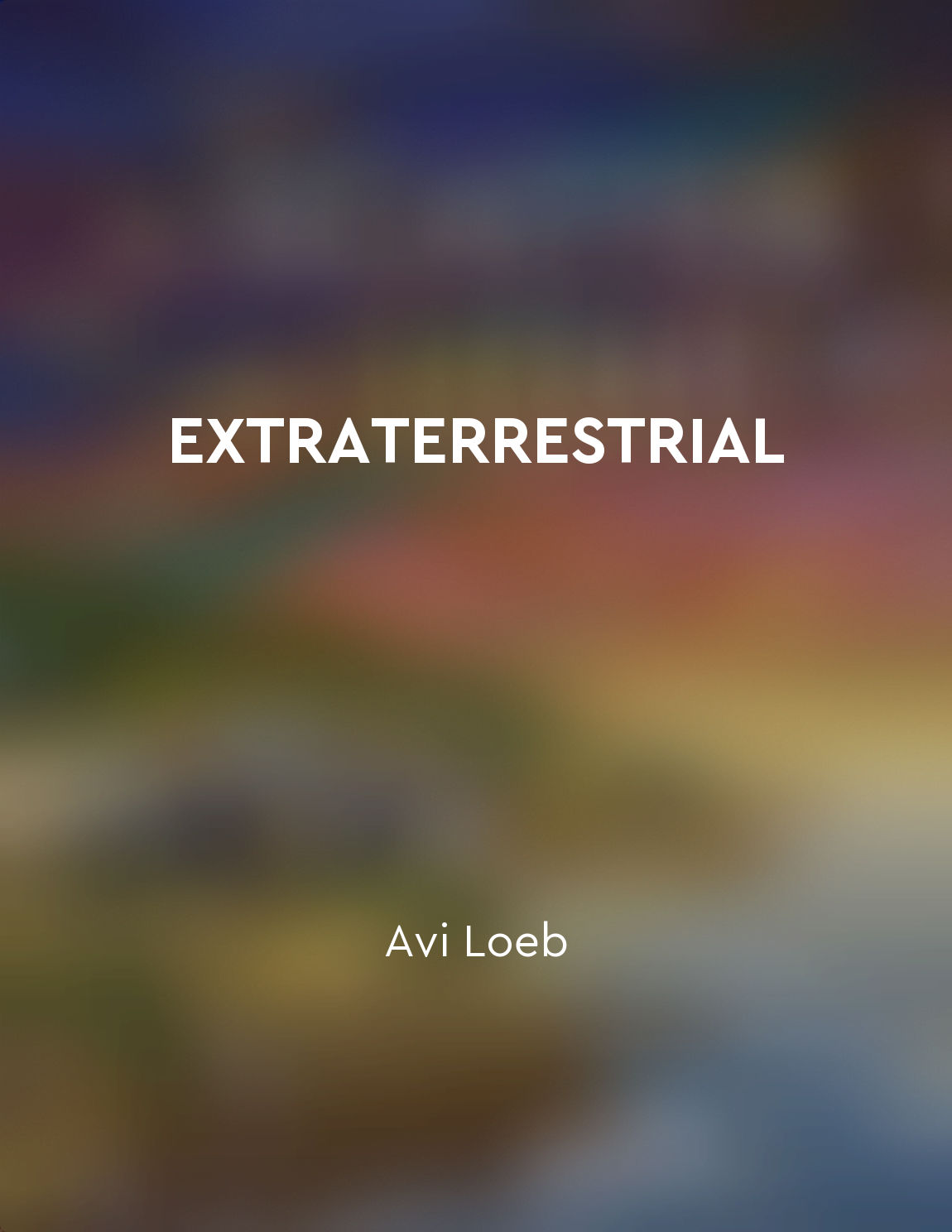Our solar system holds clues to extraterrestrial existence from "summary" of EXTRATERRESTRIAL by Avi Loeb
Our solar system holds clues to extraterrestrial existence that we have not yet fully explored. The objects within our cosmic neighborhood can provide valuable insights into the possibility of life beyond Earth. For example, the interstellar object 'Oumuamua that passed through our solar system in 2017 raised questions about its unusual shape and behavior, leading some scientists to speculate that it could be an artificial probe sent by an alien civilization. While this hypothesis may seem far-fetched, it demonstrates the importance of studying celestial bodies for signs of extraterrestrial activity. In addition to 'Oumuamua, other mysterious phenomena in our solar system, such as the strange behavior of certain asteroids or the unexplained presence of organic molecules on Mars, suggest that we may not be alone in the universe. By investigating these anomalies further, we may uncover new evidence that supports the existence of extraterrestrial life. For instance, ongoing missions to Mars and upcoming missions to Europa and Enceladus ...Similar Posts
The rocket equation governs how much fuel is needed for a mission
The rocket equation is a fundamental principle that dictates the amount of fuel required for a spacecraft to reach its destinat...
Training prepares astronauts
Astronauts undergo extensive training to prepare for their missions in outer space. This training is crucial in ensuring they a...
The evolution of stars shapes the galaxy
The birth, life, and death of stars play a crucial role in shaping the galaxy that we observe today. Stars are not static entit...

Interstellar travel could bring us closer to alien encounters
Interstellar travel has long been a topic of fascination and speculation for humanity. The idea of traveling beyond our solar s...
Their distance from their host star is crucial
The distance of a planet from its host star is a critical factor in determining its characteristics and potential for habitabil...

Dyson spheres could be signs of advanced civilizations
The concept of Dyson spheres as signs of advanced civilizations is an intriguing one. In the search for extraterrestrial intell...
Intelligent life may exist elsewhere
The question of whether we are alone in the universe has long fascinated mankind. As we look up at the vast expanse of stars ab...
The cosmos is a place of wonder and mystery, inviting us to explore and discover
The vast expanse of the cosmos stretches out before us, a realm of endless possibilities and unknown wonders waiting to be unco...
